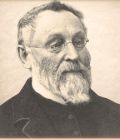COMMON NAME:
EYE-BRIGHT.
Symptoms
Pains, as from cramp.
Like Arnica Montana, is of approved valuation in nullifying the bad effect of contusions and other mechanical injuries subsequent to trauma (ar,.m, Hamamelis).
During the whole night wondering itching switches, here and there, with great restlessness.
Amenorrhoea, with catarrhal symptoms of the eyes and nose (A.,).
MENSES; PAINFUL, NOW LASTING ONLY ONE HOUR (pSOR); or late, scanty, short,
LASTING ONLY ONE DAY (Alumina, Apis., Bar-C., Nux vomica, Psorinum, Sepia, Thuja) (A).
Sycotic excrescences in association with the costive state.
CATARRHAL AFFECTIONS OF THE MUCOUS MEMBRANES, ESPECIALLY OF THE EYES AND NOSE (All-C., Calcarea, Kali-M., Mercurius, Nat-Ml, Pulsatilla) (A).
Inflammations of the eye of paramount importance (acute and burning lachrymation most in evidence).
Cornea bluish.
THE EYES WATER ALL THE TIME AND ARE AGGLUTINATED IN THE MORNING; MARGINS OF LIDS RED, SWOLLEN, BURNING (All-C.) (A.).
AVERSION TO LIGHT (Belladonna, Calcarea, Conium, Graphites, Mercurius, Natrum muriaticum, Phosphorus, Sepia, Sulphur, Zincum met.) (A).
Blepharitis; injected eyes; discharge thick and excoriating, the tars scald and irritate the cheeks; Photophobia, worse in the artificial light. Traumatic conjunctivitis (D).
Feeling as though the cornea were covered with much mucus; it obscures his vision and obliges him to frequently close and press the lids together (N.).
FLUENT CORYZA (All-C., Am-C., Arg-M., Arsenicum, Belladonna, Calcarea, Dulcamara, Kali-Arsenicum, Kali-I., Lac-C., Mercurius, Merc-C., Natrum carbonicum, Natrum muriaticum, Acid nitricum, Mix-V., Pulsatilla, Sabad., Sulphur, Tell., Thuja).
Profuse, fluent coryza in the morning, with violent cough and abundant expectoration; worse from exposure to warm south wind (A.,).
When attempting to clear the throat of an offensive mucus in the morning, gagging until the vomits the breakfast just eaten (Bryonia) (A).
PROFUSE, ACRID LACHRYMATION, WITH PROFUSE, BLAND CORYZA (reverse of All-C.) (A).
Profuse expectoration of mucus by voluntary hawking, worse on rising in the morning (A).
PERTUSSIS: EXCESSIVE LACHRYMATION DURING COUGH; COUGH ONLY IN DAY-TIME (Am-C., Arg-M., Calcarea, Ferrum, Lachesis, Mang., Natrum muriaticum, Phosphorus, Staphysagria, Thuja, Viol-).) (A).
In measles with watery eyes and fluent coryza it is some times the best remedy (N).
Chemosis (Apis, Argentum nitricum, Hepar, Kali-I., Lachesis, natrum muriaticum, Rhus toxicodendron,. Vesp.) (B).
Cataract (when the eyes water a great deal) (G.).
Dim-sightedness (Agaricus, Belladonna, Calcarea,. Causticum, Conium, gelsemium, Lachesis, Acid nitricum, Phosphorus, Pulsatilla, Ruta., Sepia, Silicea, Sulphur) (B).
Sensation as though a hair is hung over the eye, and must be wiped away (C).
Spots, vesicles and ulcers on the cornea Hepar, Mercurius, Silicea (C).
Smarting in the eyes, as from sand.
AGGRAVATION:
In the evening; during the night; whilst lying down; from the glare of the day-light and the sun; in bed; indoors; from warmth; after exposure to south wind; and when touched (Hepar).
AMELIORATION:
In the dark; in the open air and from wiping the eyes.
RELATIONSHIP:
Similar to : Pulsatilla in affections of the yes; reverse of All-C. in lachrymation and coryza.
ANTIDOTES: Camph., Pulsatilla

